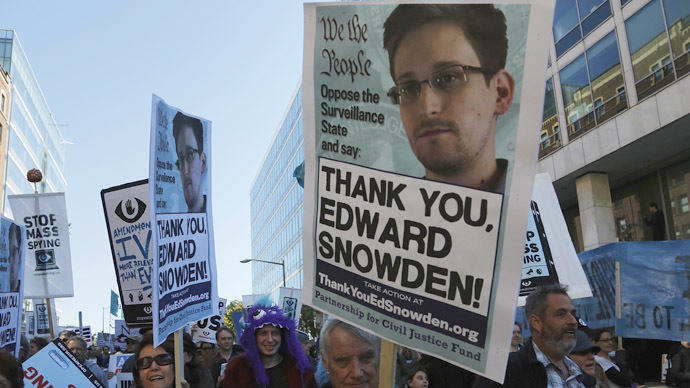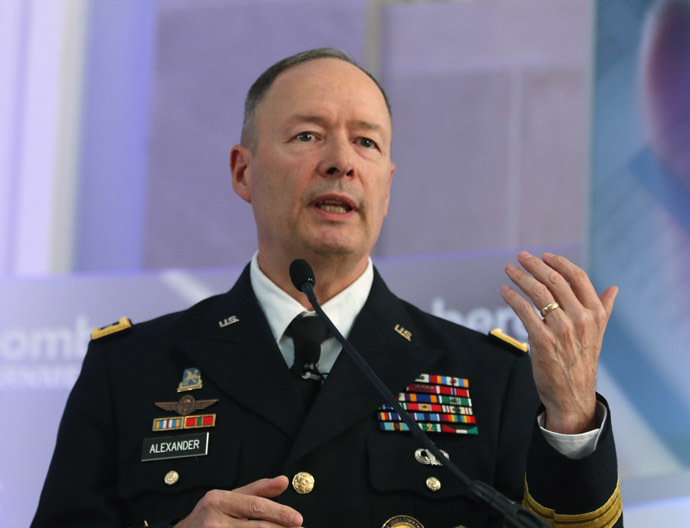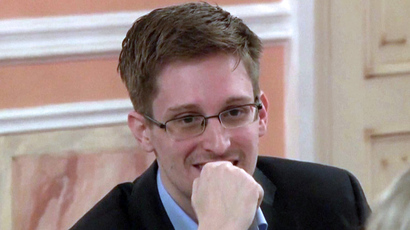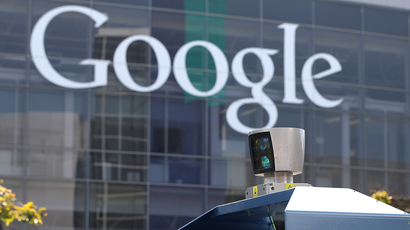Snowden released up to 200,000 documents to press – NSA chief

Former CIA employee Edward Snowden divulged as many as 200,000 classified documents to the press, says NSA Director General Keith Alexander. The spy chief said the data was leaked in such a way that it did the “maximum damage” to the NSA and the USA.
Alexander shed light on the amount of classified files stolen by
Snowden at a question-and-answer session on October 31 in
Baltimore. The transcript of the speech was made public by the
NSA on Thursday.
“I wish there was a way to prevent it. Snowden has shared
somewhere between 50 [thousand] and 200,000 documents with
reporters. These will continue to come out,” Alexander said.
He added that the security leaks had been done in a way “that
does the maximum damage to NSA and our nation.”
Alexander slammed Snowden’s activities as “absolutely
wrong” and said the leaks increased the chances a terrorist
attack will “get through.”
“We're at their mercy. They're putting them out, one or two a
week, to cause the maximum problem. They get it wrong,” said
Alexander in the address, adding that it was very difficult to
prevent such data leaks.
Although the information divulged by Snowden has been labeled
‘the worst security leak’ in history, over twice as many
documents were handed over to WikiLeaks by Private Chelsea
Manning. However, none of the data that was given to WikiLeaks
was classified higher than ‘Secret’, whereas most of the Snowden
documents were either ‘Top Secret’ or ‘Special
Intelligence’.

‘War of the worlds’
In his speech, the spy chief touched upon reports that the NSA
had recorded more than 70 million telephone calls of French
citizens over a 30 day period. In an attempt to allay fears the
NSA is eavesdropping on French civilians, Alexander said the data
gathering was aimed at supporting NATO-related activities.
“None of that information was collected in France, on French
people or European citizens,” he said. Le Monde, the French
publication that originally received the information on the NSA’s
spy activities in France from Snowden said they had reason to
believe that US espionage was not only aimed at combatting
terrorism, but also targeted high-profile politicians and
business figures.
Alexander described the uproar caused in the wake of the leaks
released by Snowden in Europe “huge.”
“And it's interesting. It's almost like ‘the War of the
Worlds,’” he added.
Snowden’s revelations caused rifts to develop between the US and
its traditional European allies. A special EU delegation went to
Washington at the end of October to demand an explanation for the
reports of mass espionage on EU citizens. Additionally, Germany
sent a separate delegation to get answers over allegations that
the NSA listened in on the personal communications of Chancellor
Angela Merkel.
In response to the spy report, the EU threatened to suspend talks
to negotiate a lucrative free trade deal with the US that could
boost economic growth by $100 billion per year. In spite of the
threats, EU and US policymakers agreed to hold two more rounds of
trade negotiations over the next two months, The Wall Street
Journal reports. Germany, however, could potentially stall an
agreement, demanding that data protection be included as a
condition in the deal.














